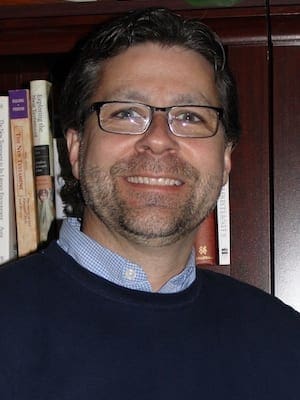The word Advent comes from the Latin word meaning “coming,” and the season that bears this title consists of the four Sundays before Christmas that look with anticipation to the coming of Christ.
While we celebrate this time as a time of looking forward to the celebration of Christ’s birth, the practice of Advent each year is also focused on our faith and hope in what God is preparing for our future: “Behold, I am making all things new” (Revelation 21:5).
While traditionally, Christians have focused on the themes of hope, peace, joy and love, important themes as they are, I would like to glean another set of ideas from the opening of the first Gospel to be written, the Gospel of Mark.
Although Mark, unlike Matthew and Luke, does not say anything about the birth of Jesus, this does not mean that Mark lacks an Advent theme.
Moreover, a careful look at Mark’s prologue produces some very important themes for our renewal during this season of Advent. These themes are: waiting, hearing, repenting and believing.
I’ll address the themes of hearing, repenting and believing in the coming days, and thus I’ll begin this series of reflections with the theme of waiting.
The opening of Mark’s narrative situates the story of Jesus in the context of the past, Israel’s history of exile, and God’s promise of redemption and liberation.
Although all the statements that Mark attributes to the prophet Isaiah cannot be found in Isaiah, the intention of the Gospel’s narrator is to pick up God’s promises of the past spoken through Isaiah in order to frame the new work that God was doing in the present as the fulfillment of those promises.
In the thought of the Gospel’s author, the theme of a new exodus, which was prevalent in Isaiah’s prophecies, was now being realized in the coming of God in the incarnation of Jesus.
But the fulfillment of this promise was only possible through the faithful waiting of God’s people.
This does not mean that the actions of God’s people brought about the fulfillment of God’s promises. God is the only one who acts to accomplish God’s promises.
But the waiting of God’s people was an act of faith and hope that held onto the promises of God and looked with anticipation for God to accomplish that which they had not yet experienced, but which God had surely promised.
In our nanosecond-oriented world, we find it difficult to wait. We are extremely uncomfortable with delayed satisfaction, and we make every effort to achieve and obtain quick but often fleeting ways of gratifying our lives.
We realize we hunger, but we fail to realize that our deepest hunger cannot be satisfied by those momentary pleasures.
Our deepest longings will only be satisfied by the renewal of God, who is continually making things new, but perhaps not at the speed we would desire. And thus, we must wait.
Yet, waiting on God is not like waiting in line at the store or waiting for an appointment.
Waiting on God is like a child waiting to open presents on Christmas morning. There is hope and expectation, along with the assurance that though she may not know what is wrapped in the Christmas paper, she does know the one who gives the gift, and she knows that the gift is the expression of the giver’s love.
We do not wait in fear and anxiety of what might come in the future; we wait with faith and hope in the God who holds the future.
In our waiting, however, we do not enter into state of being and living by which we separate ourselves from the reality of a creation under chaos.
Rather, we wait with creation, and we suffer with those who suffer – serving, healing and praying for God’s final redemption.
In doing so, we do not deny the reality of suffering and injustice, but we work as we wait for God’s promised hope.
Indeed, we cling to that hope as a means of confronting the suffering and injustice of our world with the realization that they hold no eternal reign over us.
And thus, we wait as we are being continually reoriented toward God’s future hope.
Drew Smith, an ordained Baptist minister, is director of international programs at Henderson State University in Arkadelphia, Ark. He blogs at Wilderness Preacher.
Assistant Director of the Honors College at Henderson State University in Arkadelphia, Arkansas.

